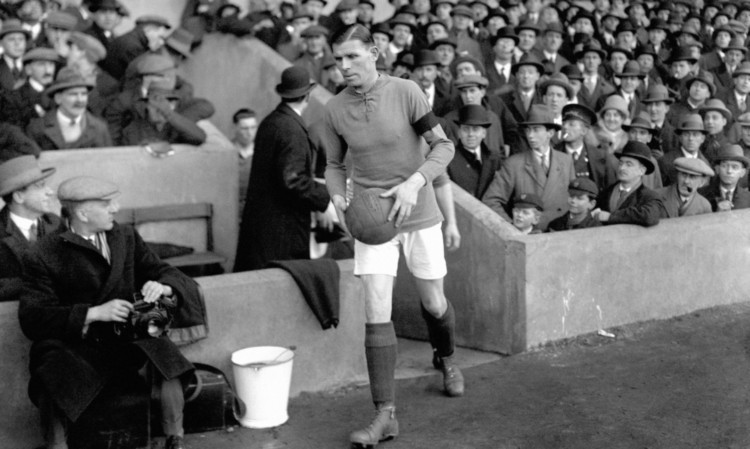
The former Arsenal captain became more famous for writing about football than playing it.
These days, it’s common for retiring footballers to take up a career in the media. From Gary Lineker presenting Match of the Day to Sky Sports pundits such as Gary Neville, Jamie Carragher and Jamie Redknapp, it seems you can’t tune into a match or pick up a newspaper without being regaled with the views of
ex-pros.
The first player to make an impact on the media was undoubtedly Charlie Buchan. In fact, he became more famous for writing about football than playing it!
Any youngster who grew up in the 1950s and 1960s will remember Charles Buchan’s Football Monthly and the annual that became an essential stocking filler every Christmas.
In 1947, Buchan also co-founded the Football Writers’ Association, which presents the prestigious Footballer of the Year trophy every May.
He wrote one of the first-ever coaching manuals and commentated for the BBC.
Buchan played his football at Sunderland and Arsenal. He also won six England caps, scoring four goals.
On this weekend in 1912, he scored five times for Sunderland against Liverpool in a 7-2 win, and even though his career was interrupted by the First World War, he scored 209 goals in 370 matches for the Roker Park club.
A tall, elegant forward, Charlie won a Championship and FA Cup runners-up’ medal with Sunderland in 1913.
In the war, he served with the Sherwood Foresters.
He was awarded the Military Medal and was promoted to temporary second lieutenant for the final months of hostilities.
He returned to Sunderland in 1919 and was his club’s top scorer in each of the next five seasons.
He was almost 34 when Arsenal signed him in the summer of 1925. Sunderland initially demanded a £4,000 fee, but Gunners manager Herbert Chapman bargained them down to £2,000 plus £100 per goal scored by Buchan during his first season.
He scored 21, forcing Arsenal to pay £100 more than Sunderland’s original demand.
Buchan captained Arsenal to their first-ever Cup Final in 1927 (they lost to Cardiff City) and retired at the end of the following year at 36.
He died in June, 1960 at the age of 68.

Enjoy the convenience of having The Sunday Post delivered as a digital ePaper straight to your smartphone, tablet or computer.
Subscribe for only £5.49 a month and enjoy all the benefits of the printed paper as a digital replica.
Subscribe